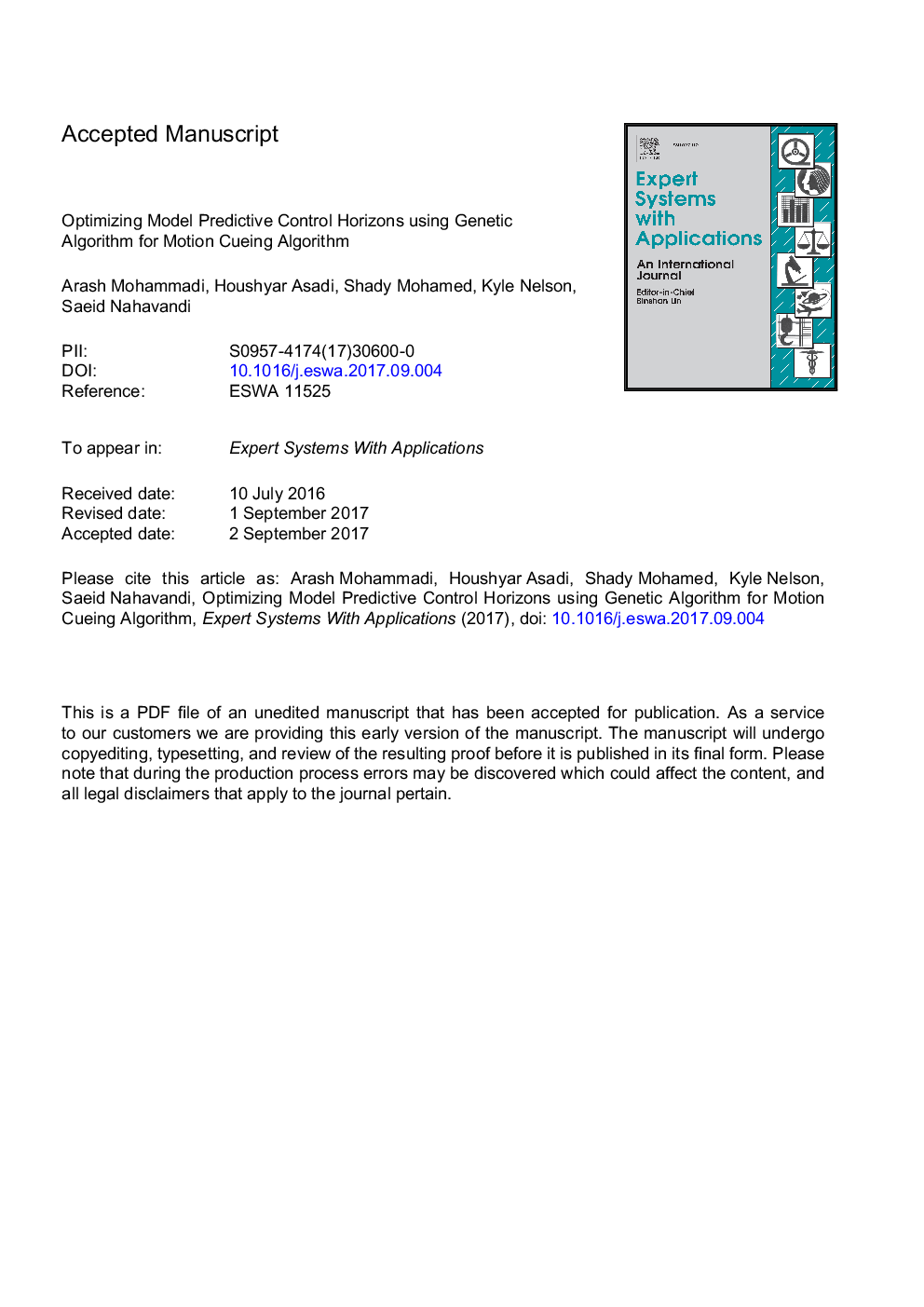ترجمه فارسی عنوان مقاله
بهینه سازی افق های کنترل پیش بینی مدل با استفاده از الگوریتم ژنتیک برای الگوریتم حرکت سیای
عنوان انگلیسی
Optimizing Model Predictive Control horizons using Genetic Algorithm for Motion Cueing Algorithm
| کد مقاله | سال انتشار | تعداد صفحات مقاله انگلیسی |
|---|---|---|
| 92781 | 2018 | 19 صفحه PDF |
منبع

Publisher : Elsevier - Science Direct (الزویر - ساینس دایرکت)
Journal : Expert Systems with Applications, Volume 92, February 2018, Pages 73-81

